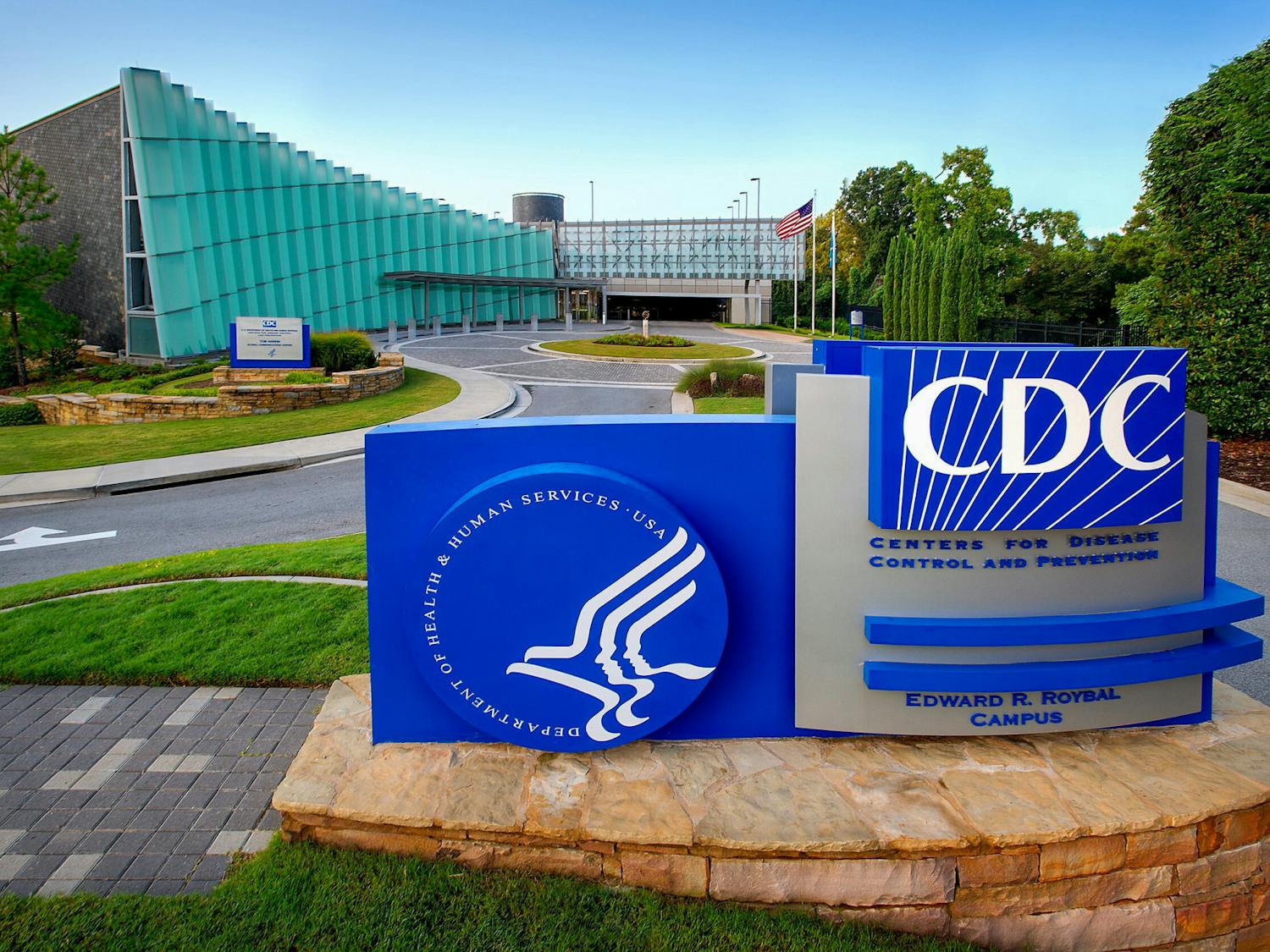Penn strongly recommends that community members receive a COVID-19 booster shot and limit social gatherings in the final weeks of the semester as COVID-19 positivity rates increase across the country and the Omicron variant begins to spread.
Chief Wellness Officer Benoit Dubé told The Daily Pennsylvanian on Tuesday that Penn urges members of the community to limit social gatherings, specifically those that are large, indoors, and unmasked. Penn also sent an email to all faculty and staff on Nov. 17 recommending that departments postpone in-person December gatherings to January or beyond in an effort to prevent the spread of COVID-19 during the holiday season.
The University's COVID-19 positivity rate increased slightly last week, rising from 0.64% between Nov. 14 and Nov. 20 to 0.84% between Nov. 21 and Nov. 27, mimicking a nationwide trend. The increasing positivity rate comes as the Omicron variant — the newest iteration of COVID-19 that differs from previous variants due to its unusually high number of mutations that have the potential to make vaccines less effective — begins to rapidly spread across the globe, including its first appearance in the United States on Wednesday. The patient was fully vaccinated but had not received the booster shot, according to health officials.
To combat the new variant as well as the uptick in cases, the University is planning to host a COVID-19 booster shot clinic "in the coming weeks," but the timeline of exactly when the clinic will be held remains up in the air, Dubé said.
Booster shots are available to be scheduled at all three CVS Pharmacy locations near campus: 3401 Walnut Street, 3925 Walnut Street, and 4314 Locust Street.
"We have a responsibility to one another to take the necessary steps to prevent this from spiraling," Dubé said. "Worst case scenario, we become complacent, don't have a care in the world, and pretend like it is 2019, and then there is widespread transmission and we're forced to shut things down further. We have to take the steps now — by limiting social gatherings — to prevent this."
He added that while Penn currently has no plans to put any sort of mandate in place on social gatherings, it is an option that remains on the table, depending on how the newest wave of the pandemic unfolds.
"By making this strong recommendation now, it will hopefully help us avoid having to ratchet things up and actually cancel social events or get rid of all registered events for the time being," Dubé said.
RELATED:
Wistar Institute receives $4 million to study effect of COVID-19 on at-risk populations
COVID-19 cases on the rise across Philadelphia before Thanksgiving break travel
Dean of the College of Arts and Sciences Paul Sniegowski wrote in an email to students in the College on Tuesday that the University is "strongly encouraging" all students, faculty, staff, and postdoctoral students to participate in screening testing after arriving back on campus following travel over Thanksgiving break. Dubé echoed Sniegowski, adding that due to the nature of the holiday — uniting with those outside of normal social circles and sharing food indoors — and the virus' high transmissibility rate, testing upon returning to campus was of the utmost importance.
"These steps — gateway testing this week and limiting social gatherings through the end of the semester — are easily within our control and we are strongly encouraging this change in behavior," Dubé said.
As for the educational format of the spring semester, Dubé said the University remains hopeful that learning will continue in person with all community members wearing masks, despite the nationwide uptick in cases and the new variant.
"This hope is based on fact and the evidence of no transmission in classrooms or the workplace," Dubé said. "Unfortunately, the new variant and the changing nature of COVID-19 don't allow us to be so sure quite yet. Our individual actions now have the power to determine the actions in the future, so taking these small steps is crucial."









